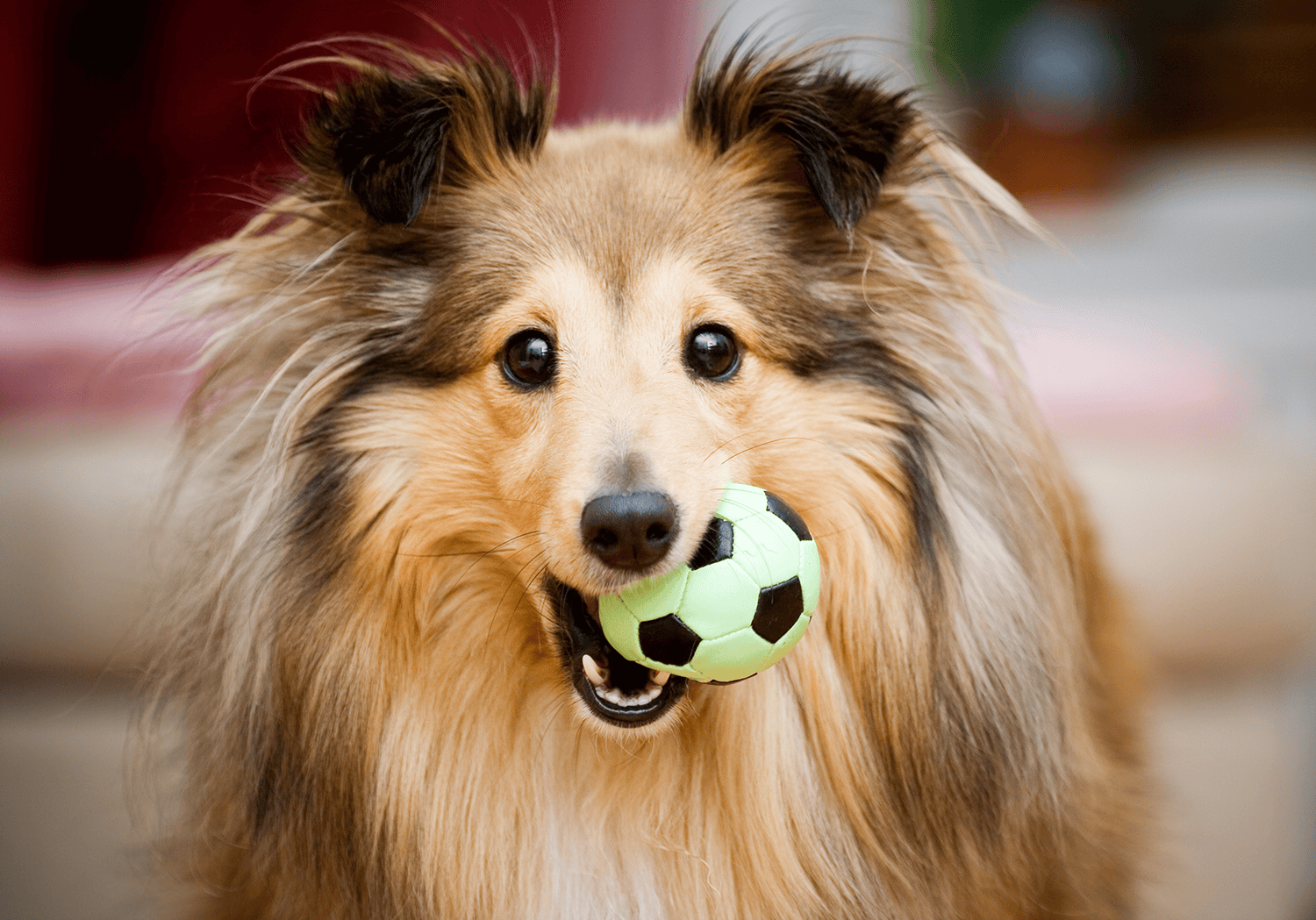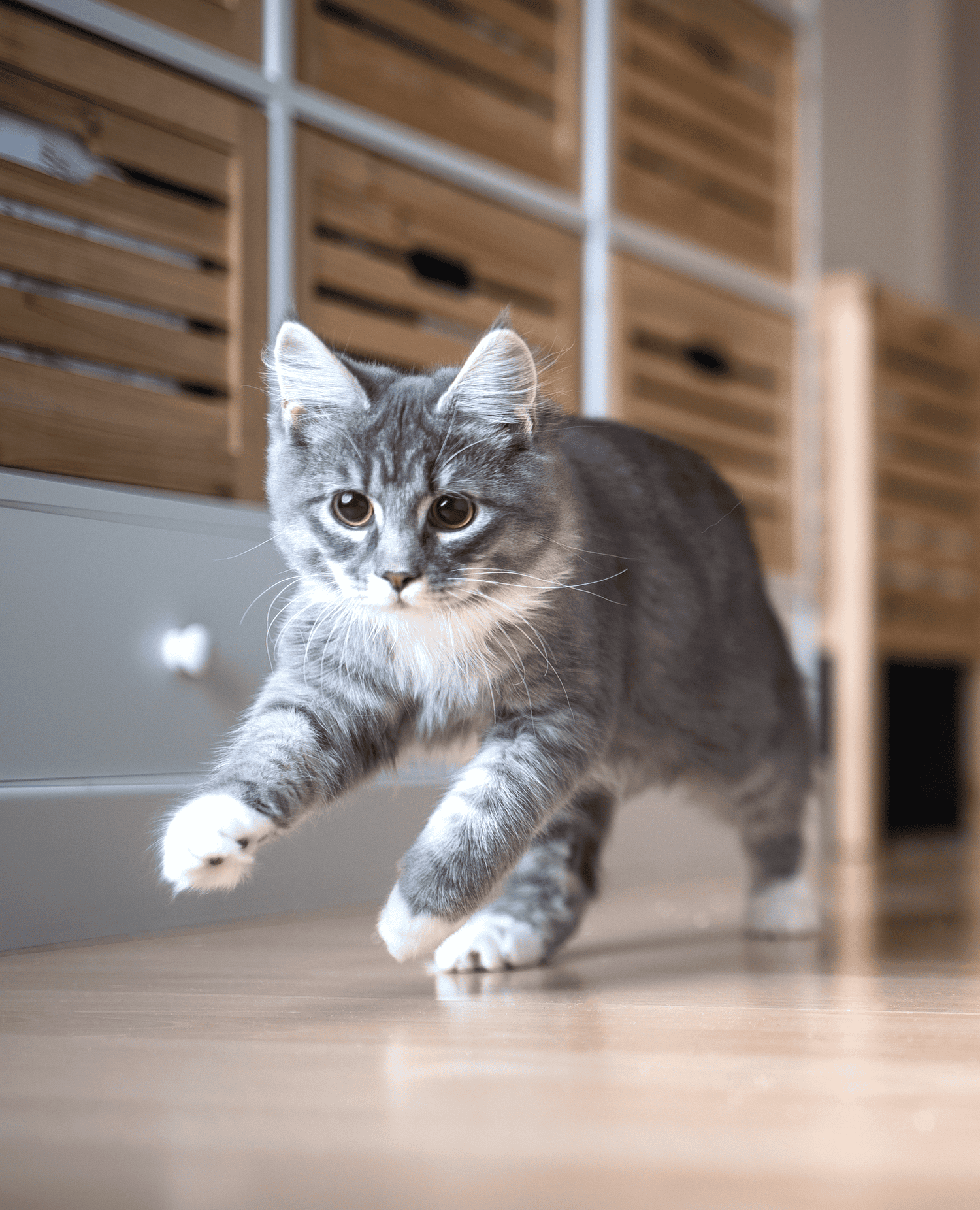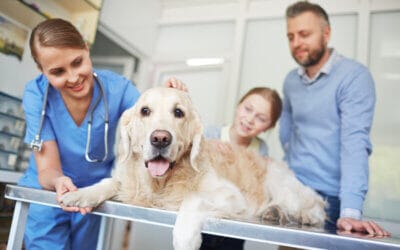Check out these 5 common pet behaviors and what they mean!
1. Why does my dog greet me with a toy?

You might recognize this routine — you come home from work, and before you’ve barely gotten a foot in the door, your dog runs up to you with a favorite toy in her mouth. What gives?!
Your dog could be trying to tell you a few different things with this behavior. It might be a sign that she wants to play. After being home all day, she’s probably excited to see you and might be eager for some playtime. Or she might have learned you give her lots of attention by presenting a toy to you, so she’s just showing off.
She could also be using it as a distraction. For example, if your dog typically barks when you come home and you’ve gotten into the habit of giving her a toy to keep her occupied, she might now associate you coming home with putting a toy in her mouth. In any case, when she brings you her toy, enjoy the sweet ritual and give her a little love!
2. Why does my cat sleep all the time?
It’s true that cats snooze a lot (up to 15 hours a day) but most of that time is spent in a light sleep. This is so they can easily be awakened if, say, a predator approaches or it’s time for dinner. The remaining time, about 25%, is spent in a deep sleep. All this resting is so they can conserve energy — for hunting, pouncing, climbing, and all the other activities that take a tremendous amount of energy.
3. Why does my pet stare at me?

For dogs, oftentimes a stare means they want something — a treat, playtime, praise, direction, or a bathroom break. It’s good to return her gaze, just as long as she doesn’t show signs of aggression and you’re not encouraging unwanted behavior. And beware of a hard stare, which can be accompanied by a tense body, a lowered head, or dilated pupils. This could indicate she is going to bite.
A cat who stares usually wants something too, like food or affection. However, it could also mean she’s angry or afraid. Look for additional signs in her body language, like a stiff or crouched body, outturned ears, or dilated pupils. If you see any of these signs, keep your distance until she’s had a chance to calm down.
4. Why does my cat run away from the litter box after using it?

There are a lot of theories about why cats poop and run (also known as “the zoomies”). One theory says it’s because cats feel better after having gone to the bathroom and are exhibiting post-poop happiness. Another theory says they’re celebrating their accomplishment. Since kittens rely on their mothers to clean them after they go to the bathroom, the theory claims that adult cats bolt from their litter boxes to show their independence.
It could also be a survival instinct — they’re either running away from the smell to avoid being located by predators, or they’re trying to get far away from potential poop parasites. It’s also possible that a cat does this because she’s in pain or uncomfortable. If you notice your cat running from the litter box accompanied with other alarming signs or behavioral issues, be sure to talk to a veterinarian to make sure it’s not something serious.
5. Why does my dog dig?
Whether pawing a pile of blankets or creating a hole in the ground, digging is a natural instinct for dogs. There are several reasons why dogs dig. They might do it to hide toys and food from others, or maybe they smell or hear something underground and are trying to get at it. They could also be doing it out of boredom, as part of a nesting instinct, or as a way to escape (like digging near a fence to crawl under). Some do it as part of the “denning” process, in which they dig holes to seek shelter away from the heat in the summer or the cold of winter.
There are a few ways to curb this behavior if digging becomes a problem — supervise your dog and correct her behavior when it happens, provide her with an area where she’s allowed to dig, work with her on the “leave it” command, or use a distraction that keeps her mentally and physically stimulated, like a food puzzle or exercise.
More Pet Behaviors
The habits listed above are completely normal, along with many other pet behaviors. Want to learn more? Check out Why Does My Pet Do That — and Should I Call My Vet? and Why Does My Pet Do That? Vol. 2.



